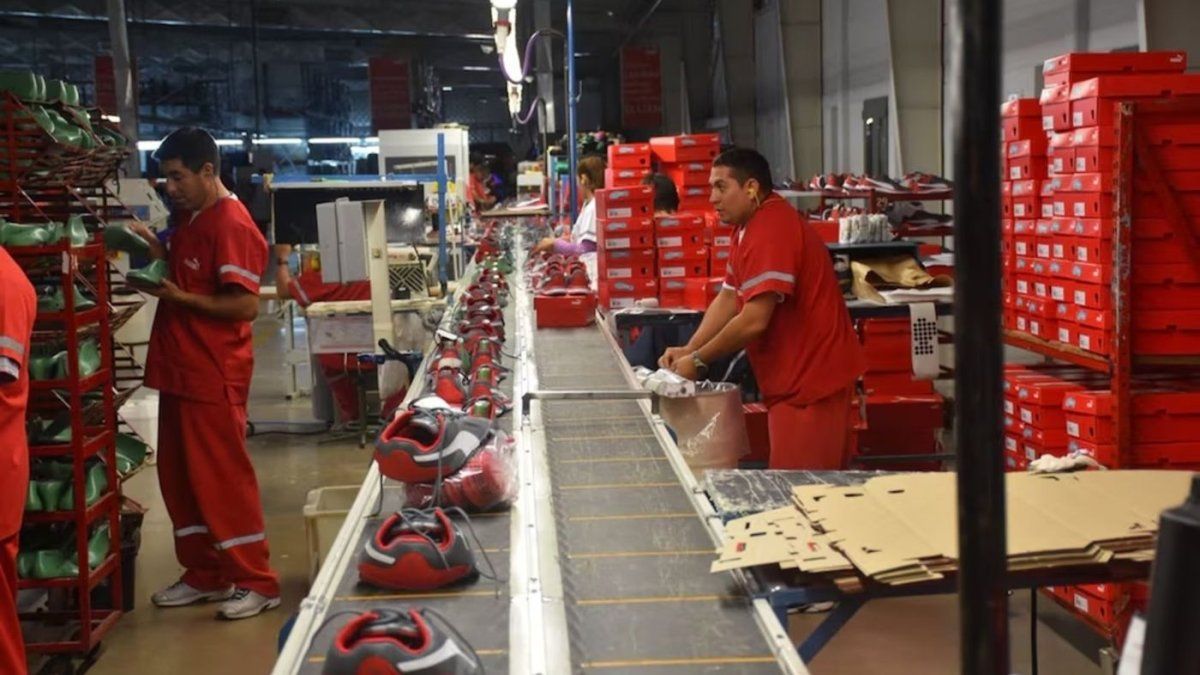In recent months, the footwear industry in Argentina was shaken by a series of layoffs that reflect a deep crisis in the sector. This week, the Puma company, with a plant in La Rioja, fired 23 workers and at this time it is speculated that the staff cut would run in the next few days.
As the workers explain, the company sent telegrams of disengagement without prior notice and many of them received it on their vacation. Anyway, Puma promised to pay 100% of compensation corresponding within the framework of the Labor Law.
The reality is that Puma is one of the most relevant footwear companies in Argentina, with a production that supplies both the domestic and outside market. The crisis in its plant in La Rioja highlights the structural problems facing the sector, aggravated by the fall in consumption and the entry of imported products at lower prices.
Within this framework, its workers warn that the company had been working mid -machine and that is why from the union of workers in the footwear industry (Uticra) They are on alert and requested a meeting with directors of the company to learn about the status.
In November 2021, Puma had announced the incorporation of two new production lines to his Rioja factory, which joined the three lines installed in the first semester of 2021. Towards the end of that year the firm reached a historical record of two million per year produced in Argentina and had some 500 workers. This way, The company was betting on the country again after in 2017 more than 170 layoffs executed, product of the fall of sales during the presidency of Mauricio Macri. Now, with Milei at the head, the story is repeated again.
An industry in trouble
As a history, the Dass group, known for making footwear for brands such as Adidas and Row, recently announced the closure of its plant in Colonel Suárez, affecting 360 workers. The Brazilian capital company explained that the decision was framed within a business plan in which it will reorganize its entire operation in its other factory located in the town of Eldorado, province of Misiones.
The Colonel Suárez plant had been inaugurated in 2011 on the former Gatic Factory. In its first years of activity, up to 1,700 people, But over time it was reducing its staff due to various economic factors.
The reality is that the closure of this plant generated a strong concern in the community of Coronel Suárez, since Dass was the second largest employer in the region after the municipality.
Another case of relevance in the sector was that of the Bicontinentar firm, which last November dismissed 130 workers from its production plant located in the Buenos Aires city of Chivilcoy.
These layoffs are not isolated cases, but are framed in a broader crisis that crosses the footwear industry in Argentina. Various factors are contributing to this situation, among them, the fall of consumption due to the economic recession, which led to a decrease in the demand for footwear. According to data from the Chamber of the Footwear Industry (CIC), Production in the sector fell 15%, while sales decreased 20% in the last year. To this is added the increase in imports, which grew around 50% in the same period, allowing the entry of foreign products at lower prices and hindering competition for the national industry. Also high production costs and high tax pressure affect the profitability of local companies, forcing some to reduce their employee plant or, in more extreme cases, close their doors.
Source: Ambito
I am a 24-year-old writer and journalist who has been working in the news industry for the past two years. I write primarily about market news, so if you’re looking for insights into what’s going on in the stock market or economic indicators, you’ve come to the right place. I also dabble in writing articles on lifestyle trends and pop culture news.




